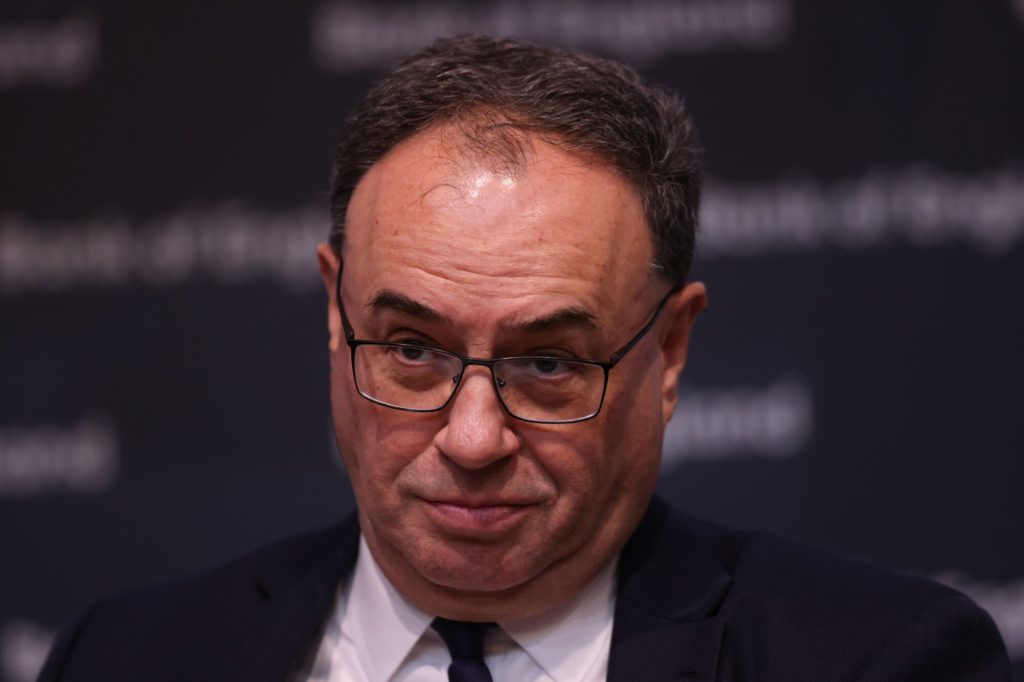Bank of England Governor Andrew Bailey said regulators need to look again at how much protection they extend to depositors at smaller banks, one of the key lessons he said should be learned from the recent crisis in the financial system.
(Bloomberg) — Bank of England Governor Andrew Bailey said regulators need to look again at how much protection they extend to depositors at smaller banks, one of the key lessons he said should be learned from the recent crisis in the financial system.
Speaking in Washington on the sidelines of the International Monetary Fund’s spring meetings, Bailey expressed confidence in the health of the financial system. He said rules enacted after the crisis more than a decade ago have stood firm.
“The post crisis reforms to bank regulation have worked,” Bailey said, according to a text released Wednesday by the BOE in London. “Today I do not believe we face a systemic banking crisis. When I look at the UK banks, they are well capitalized, liquid and able to serve their customers and support the economy.”
Still, he said the collapse of Silicon Valley Bank indicated a shortfall in the depositor protection program for smaller institutions.
“The idea behind deposit protection is to set a level below which the assurance of value holds, and above which it does not,” Bailey said. “Practice, I would suggest, points to the difficulty of this principle.”
He noted that larger banks in Europe must hold “eligible liabilities”, which can be converted into equity in the event of a bank failure.
But smaller banks find it harder to issue securities which count as eligible liabilities, he said.
“The US authorities have announced a review of their deposit insurance system,” he said. “In the UK, the Bank is also considering improvements to our approach to depositor pay-outs for smaller banks which do not have eligible liabilities.”
Currently, those improvements were focused on speeding up pay-outs, Bailey said. He also raised the prospect of increasing deposit protection limits, though this “could have cost implications for the banking sector as a whole” as there was “no free lunch.”
Read more: New Zealand Doubles Proposed Deposit Protection to NZ$100,000
There was a trade-off, Bailey added, between increasing protections for customers and placing too heavy a burden on lenders.
Referring to the market turmoil caused by then-Chancellor Kwasi Kwarteng’s budget last September, which increased the scrutiny of so-called liability-driven investment funds, Bailey noted it was impossible to regulate for “black swan” events.
“In a more stable world public policy must still determine the best use of tools – for instance, advocating ever tougher stress tests and larger liquidity buffers in an attempt to cover future black swans is not obviously preferable to having tools by which central banks can make temporary and targeted interventions, as we did last October,” he said.
Increasing the regulatory burden on lenders by too much “could be to create a constraint on lending and investment in the real economy,” the Bank governor added, and “would go against the need to finance investment to support stronger potential growth.”
Bailey’s wide-ranging speech also touched on so-called central bank digital currencies, or CBDCs. The Bank and the Treasury are currently exploring whether to launch their own CBDC, which has been informally dubbed Britcoin.
Bailey said the “key question” when looking at CBDCs for retail banking customers was “can we envisage a demand for it.” But in a sign that the Bank will forge ahead with Britcoin, he said policy makers “should guard against failure of imagination.”
Read more:
- What’s a ‘Britcoin’? (Podcast)
- BOE Official Says Digital Pound Is Big Opportunity for Business
- UK Plans £20,000 Limit for Individual Holdings of Digital Pounds
–With assistance from Elina Ganatra.
More stories like this are available on bloomberg.com
©2023 Bloomberg L.P.










